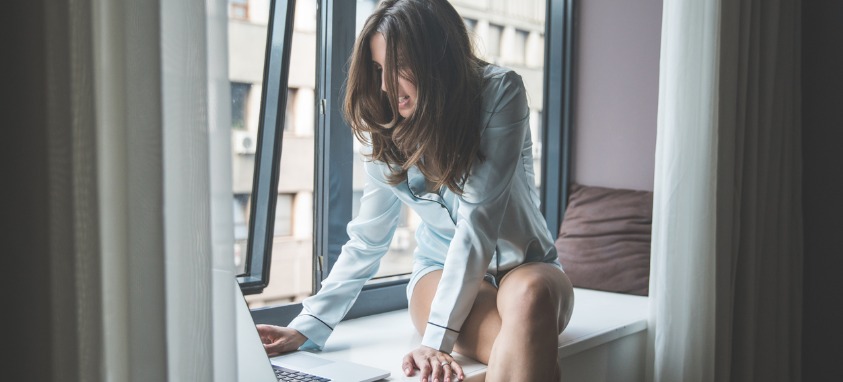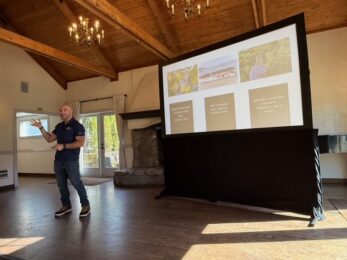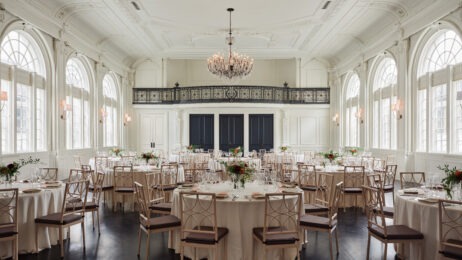As a woman, are you afraid of traveling alone? Actress Shirley MacLaine once said, “The more I traveled, the more I realized that fear makes strangers of people who should be friends.” Actress Mae West more famously said, “Good girls go to heaven, bad girls go everywhere.” Wherever you may fall on the fear-of-traveling-alone spectrum, here are four ways to make the experience more fulfilling and less daunting.
1. Be covered.
One of the least threatening but most common fears of female travelers is the “oops, I forgot it” moment. Hyatt Hotels Corp. is among major hospitality companies that want women to know they’re covered. Five years ago, it conducted focus groups with women around the world. One outcome was the introduction of Hyatt Has It, whereby the brand’s properties stock all sorts of things a woman traveler—and men, too—might have forgotten, from a cellphone charger and headphones to laundry detergent and a yoga mat. Or even a crib, booster seat and highchair for those kids tagging along.
Other hotel brands have followed, especially when it comes to personal necessities such as toothpaste, toothbrushes and a sewing kit. A few even have nail polish remover and basic polish colors—just ask.
2. Be healthy.
Health and wellness should be on every traveler’s agenda, and hotels are going beyond the standard fitness center to satisfy guest demand. Women travelers are among the most enthusiastic users of offerings such as Hilton’s Five Feet to Fitness rooms, now at 10 properties—Parc 55 in San Francisco, plus three Hiltons and six DoubleTrees in Texas, Virginia, New York, Florida and Illinois. Essentially, it’s an in-room gym, with high-end equipment and a video kiosk that leads guests through everything from weight training to yoga and meditation.
“What surprised us,” says Melissa Walker, senior director of global brand wellness for Hilton, “is it’s often not the very fit who want them.” Women who may not want to be seen by work colleagues or other guests without makeup and in workout attire are paying a premium for the convenience and privacy of the offering.
Westin, a Marriott brand, is another leader in guest well-being and fitness, female and male. It began in the last century for Westin, in 1999, with the introduction of the Westin Heavenly Bed. What started with promoting a good night’s sleep has become a veritable laundry list for fitness, wellness and well-being: selected guest rooms with Peloton workout bikes, fitness studios with Pelotons and TRX suspension training systems, “run concierges”—200 of them globally—who may work at the front desk but also lead guests on 3-to-5 mile routes that showcase local attractions, workout gear loan, local running maps, in-room workout videos, partnerships with SuperFoodsRx for energy-boosting meals and with The Juicery for healthy juices and smoothies.
3. Be safe.
Of all concerns shared by female travelers, safety is uppermost. Especially when they are journeying alone. NerdWallet.com recently posted 20 hotel safety tips for solo women. Among the website’s recommendations are not being gender-specific when reserving a room (provide only your first initial and last name), not staying on the ground floor of a hotel (easiest intruder access), not allowing the front desk employee to announce your room number (refuse the room unless it is written down only) and packing a rubber door stopper (for extra fortification inside your room door).
Of course, picking a safe hotel in the first place is the first precaution women should take. NerdWallet advices searching Yelp reviews for mentions of safety.
Personal safety app bSafe alerts friends or family—known as guardians in the app—that you’ve arrived at your destination, sends updates on your changing GPS location and sets off an audible alarm on your phone at the press of a button. That alarm also notifies your guardians as to your exact location and starts audio and video on your phone. The app provides directions to the nearest police station and hospital, as well.
And there’s another nifty feature. Called “Fake Call,” you can get your phone to ring to get you out of an unpleasant or threatening situation.
4. Be engaged.
“Women are nearing half of all business travelers, and they make up 85 percent of purchase choices in the household,” Carolyn Pearson, the founder of Maiden-Voyage.com, told CNN. Her website connects female business travelers across the globe and rates women-friendly hotel brands. Aimed at professional business travelers, it boasts members from more than 80 countries. Membership is free.
“We believe that staying in with room service or a supermarket takeaway is a missed opportunity,” Pearson writes on her website. “We want to liberate you, to awaken your passion for travel, to encourage you to get out and explore a new city safely.” The website facilitates connecting with other “like-minded professionals and inspiring women for an evening, perhaps giving you the confidence to try a nice restaurant, see a show or just enjoy some great conversation over a relaxing glass of wine.”
Pearson also promises advice on “where you can grab a good manicure, great shopping or a good hairdresser.”
Tourlina is a free app for women-only travelers that pledges to connect “interesting and entertaining female companions and locals within a secure and trusted network.” You enter a trip by country and time, and then select a travel companion with mutual interests by swiping left or right through the choices. Online chat confirms your decision and plans to meet.
The New York Times wrote about Suzanne Randolph, a former art adviser, after she launched the Alix Experience in New York, San Francisco, London and Paris last year. For an annual fee, ranging from $750 to $2,000 per city, depending on level of service, women can tap into a concierge staff to suggest restaurants and services such as yoga classes. It also lets members connect during events such as wine tastings and art gallery tours.
The Times asked Randolph why a hotel concierge couldn’t do much the same thing. “Hotel concierges are great,” she replied, “but they often have set relationships with restaurants and other service providers, which can influence their recommendations. The local Alix concierge doesn’t play favorites. Our recommendations are based on blind trails using our own money.”




